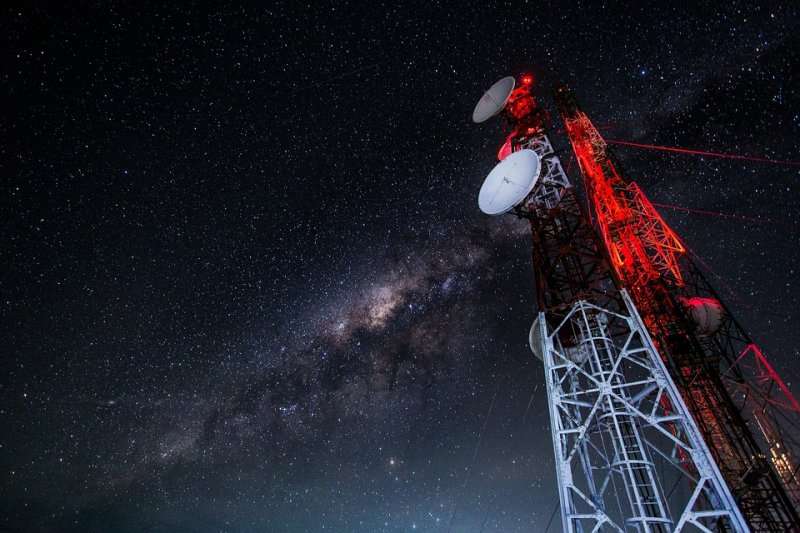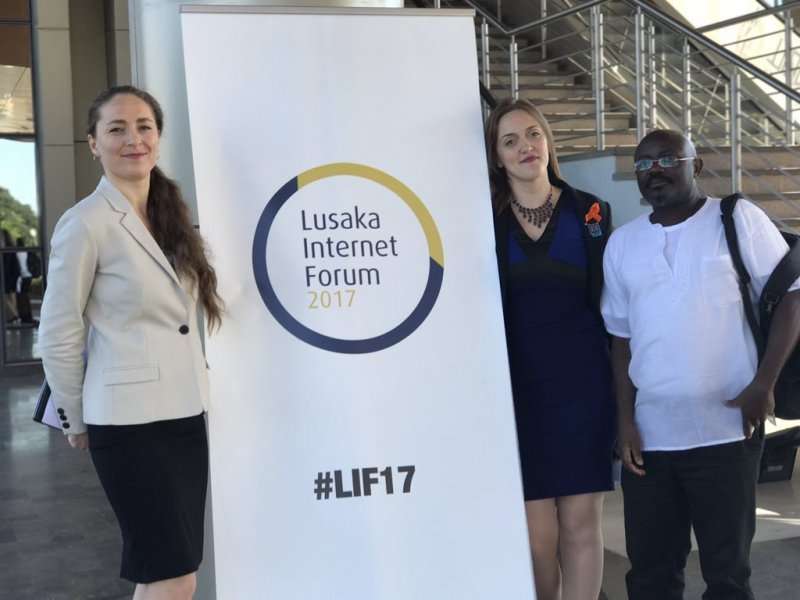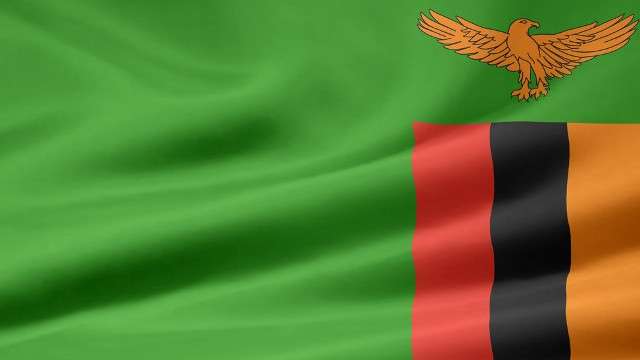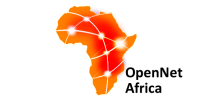By Daniel Mwesigwa |
The government of Zambia is set to introduce a daily levy of 30 Ngwee (USD 0.03) on internet voice calls. In a press statement issued after a cabinet meeting on August 12, 2018, the government spokesperson said internet calls through platforms such as Viber, WhatsApp and Skype “threaten the telecommunications industry and jobs” in licenced telecom companies such as Zamtel, Airtel and MTN”.
Accordingly, the cabinet approved the issuance of a Statutory Instrument to “facilitate the introduction of the tariff to be charged through mobile phone operators and internet providers.” In justifying the introduction of the levy, the government spokesperson cited research which showed that “80 percent of the citizens are using WhatsApp, skype, and Viber to make phone calls.”
The statement did not indicate when the statutory instrument would be introduced, or when the levy is anticipated to take effect. The new tax, according to reports quoting the communications minister, was expected to fetch USD 22 million annually.
The proposed levy adds to Zambia’s mixed record on ICT access and freedom of expression online. The Zambia Information & Communications Technology Authority (ZICTA) reports a mobile phone penetration rate of 81.9% and mobile internet penetration rate of 47.1%. However, mobile and internet proliferation is threatened by high costs of access, a digital divide between men and women and between rural and urban areas. Quality of service also remains poor as evidenced by the recent fines slapped by ZICTA on the three leading telecommunications service providers.
The Media Institute of Southern Africa (MISA) Zambia Chapter and a collective of bloggers have expressed deep concern about the tariffs on internet calls. They asked government to shelve the plans to introduce the tariff and to instead undertake efforts to promote affordable internet access. They argued that the “underlying objective” of the tariff is to “stifle free expression of millions of Zambians who increasingly depend on online tools to communicate.” They added that it is a “threat to entrepreneurship and innovation as many youths and citizens are using internet platforms to advance their socio-economic activities.”
Meanwhile, the Zambian cabinet has also approved the introduction of the Cyber Security and Cyber Crimes Bill that will repeal and amend provisions of the Electronic Communications and Transactions Act No. 21 of 2009. The bill will purportedly “promote an increased cybersecurity posture, facilitate intelligence gathering, investigation, prosecution and judicial processes in respect of preventing and addressing cybercrimes, cyber terrorism and cyber warfare.”
In addition to facilitating the establishment of Zambia National Cyber Security Agency (ZNCSA), which is expected to serve as the “coordination centre for all matters related to cyber security at national and international levels”, the proposed law will also criminalise “computer-based offences and network-related crime in line with the Penal Code”. Furthermore, it will “provide for investigation and collection of evidence for computer and network related crime and also provide for the admission of electronic evidence for such offences” as well as “adequately deal with various crimes committed using social media platforms.”
Zambia’s move becomes the latest in a string of steps taken by African governments to undermine internet access and affordability, and weaken the potential of the internet and related technologies to promote free expression, access to information and civic participation. In March 2018, Uganda’s communications regulator issued a directive requiring online content providers to register and pay an annual fee of USD 20. Shortly thereafter, in July 2018, social media taxes were introduced with users required to pay a daily levy of Uganda Shillings (UGX) 200 (USD 0.05) before regaining access to social media platforms which were blocked.
In neighbouring Tanzania, online content service providers and producers have to pay over USD 900 to register with the state for permission to maintain their platforms, according to new 2018 regulations. Meanwhile, in the Democratic Republic of Congo, in mid June, the ministry of communications issued a decree giving online media outlets a month to comply with new regulations or face harsh penalties.
Zambia’s Mixed Record on ICT Access and Free Expression Online
By Ashnah Kalemera |
The first-ever Lusaka Internet Forum (LIF17) was hosted in Zambia’s capital on May 10-11 as a platform for discussing the various factors impacting internet use in the country, particularly in driving agricultural sustainability, gender equality and freedom of expression online.
The southern African country presents a mixed record: ICT access is growing (a mobile phone penetration rate of 75% and internet penetration rate of 32%), but is undermined by high data and voice usage costs that entrench the digital divide between men and women and between rural and urban areas. Moreover, while the country is investing in extending services to rural and underserved areas, national laws largely undermine free expression and the communications regulator is criticised for undermining citizens’ rights to free expression.
In the last two decades, Zambia has recorded some firsts on internet use – both positive and negative. In 1996, one of the first documented acts of government censorship of online content in Africa happened when Zambia’s government ordered the take down of content from the online edition of The Post newspaper, after threatening to prosecute the country’s main Internet Service Provider (ISP), Zamnet.
As we talk about #internetfreedom in #Zambia, how does it compare to other African countries? https://t.co/yYvgK2tpde #LIF17 #LeaveNo1Behind pic.twitter.com/9pKSOsta1b
— CIPESA (@cipesaug) May 10, 2017
The content was banned under the Preservation of Public Security Act for allegedly containing a report based on leaked documents that revealed secret government plans for a referendum on the adoption of a new constitution. A presidential decree warned the public that anyone caught with the banned edition, including the electronic version, would be liable to prosecution.
Since 1996, a number of interruptions to online communication have been reported. Access to some online news outlets, such as the Zambia Watchdog, has been blocked at different intervals, particularly between 2012 and 2014, over publication of content critical of the government. This alongside physical intimidation, arrests and seizure of devices such as journalists’ laptops and mobile phones. Meanwhile, in August 2016, internet connectivity interruptions were reported during the election period but these could not be verified as deliberately orchestrated by the state or service providers.
Despite these affronts to freedom of expression, in 2014 Zambia was the first African country to implement Facebook’s Free Basics initiative that allows users to access prescribed sites without the need for data. Ongoing initiatives by the Zambia Information and Communication Technology Authority (ZICTA) to promote access include the establishment of ICT training centres, acquisition of equipment for ICT-based learning and examinations under the education ministry, and the development of a computer assembly plant.
This mixed record on ICT access and internet freedom formed the backdrop of the discussions at LIF17, during which participants cited gender barriers, high illiteracy and poverty levels, and high data costs as undermining internet use in the country.
See @ChilongoshiM share her thoughts on #Civicparticipation #OpenData & #GenderEquality in #Zambia https://t.co/jegfDKxX8t #LIF17
— CIPESA (@cipesaug) May 10, 2017
Some participants stated that the country’s laws appear to target curtailing citizens’ rights, and faulted the regulator for lacking independence and failing to protect users from abuses by service providers and government agencies such as the police. “Let’s use the laws progressively not to block access to information or to [unjustifiably] control how the media work,” said a blogger. He noted that the ICT Act of 2009 does not speak to current realities, with some of its provisions criminalising freedom of expression.
There are also widespread perceptions of unwarranted surveillance of citizens’ online communications. The right to privacy is threatened by the mandatory registration of SIM cards provided for under the ICT Act and the Statutory Instrument on the Registration of Electronic Communication Apparatus of 2011. Registration requires subscribers to provide their personal details and identity cards, in the absence of a data protection and privacy law.
The Electronic Communications and Transactions Act of 2009 provides for lawful interception of communications upon issuance of a court order, and online monitoring of information in the public domain. Nearly 15 years since tabling a draft freedom of information bill, it is yet to be enacted.
Meanwhile, activists criticised the Independent Broadcasting Authority (IBA) director general for misusing their extensive powers to curtail media freedom. Last August, the IBA suspended the broadcasting licences for Muvi TV, Komboni Radio and Itezhi Tezhi Radio for “unprofessional conduct posing a risk to national peace and stability”. Activists also reported increasing attacks on individuals who use radio and TV stations to voice opinions critical of the government.
As such, following the LIF17, CIPESA led an ICT policy training workshop for human rights defenders, activists, media and social media enthusiasts to increase their understanding of relevant ICT policies in Zambia and how these affect human rights online. The workshop entailed developing their strategies in advocating for a free, open and secure internet through the innovative use of both traditional and new media.
During the training, participants were taken through mechanisms for policy engagement such as stakeholder submissions, the analysis of bills and continued activism and campaigns online including through documentation and reporting of internet freedom violation incidents.
Pledges to take responsibility in our professional & personal lives #genderict #LeaveNo1Offline #LIF17 @cipesaug @alushaks @techtrends_zm pic.twitter.com/fGp2X5NJIi
— Edna S (@eddyedso) May 11, 2017
LIF17 was organised by the Swedish Embassy in Zambia and partners including the Zambia Governance Foundation as a satellite event in the lead up to the Stockholm Internet Forum. Thematic sessions on agriculture, gender, and freedom of expression were hosted by the technology innovation hub Bongo Hive, the Asikana Network, the Swedish Programme for ICT in Developing Regions (Spider) and CIPESA.
Read more about internet freedom in Zambia in CIPESA’s State of Internet Freedom in Zambia 2016 report.
CIPESA’s work in Zambia is supported by AccessNow and the Mozilla Foundation.
Analysis of the Relationship Between Online Information Controls and Elections in Zambia
By Arthur Gwagwa |
The defining era in Zambia’s current rise in online political and civic activism can be traced back to the period between 2011 and 2013. This is when the late President Sata embraced social media as part of his political and public diplomacy strategy. As the country now prepares for the August 2016 General Elections, government, its agencies, such as the Election Ccommission of Zambia (ECZ), the opposition and civil society are all immersed in social media.
As the country’s August 2016 polls draw nearer, government has recently increased its presence on social media to abet and encourage horizontal flows of information. This is in contrast to vertical flows, where information generated by societal actors is gathered by the government through usage of a range of methods, ranging from “responsiveness” on social media to media monitoring.
This paper explores reports of information controls and filtering of the ruling regime, whose leader, Edgar Lungu, strives to balance the dictates of political survival and his reputation as a lawyer who has previously defended press freedoms. The paper analyses past and current key political events that implicate the relationship between internet-based information controls and elections in Zambia. Finally, the paper extrapolates likely scenarios in the build up to the 2016 General Elections and Constitution Bill of Rights Referendum to be held on 11 August 2016.
Read the full report here.
Online Freedoms Under Siege as African Countries Seek Social Media Users’ Information
Only a small fraction of requests made by law enforcement officials to Facebook, Google and Twitter for users’ identities or to block content originate from Africa, but there is cause to worry.
Facebook, whose popularity across Africa is growing exponentially, lists Botswana, Egypt, Ivory Coast, South Africa, and Uganda among the countries that requested users’ details in the first half of 2013. Meanwhile, last year saw seven African countries ask Google to remove content compared to only one request from the continent – by Libya – in 2010 and 2011. The beauty is that most of those requests were rejected.
No African country made a request for user account information either to Google or Twitter in the first half of 2013.
Facebook
In the first half of 2013, Botswana made three requests to Facebook related to seven users. Egypt had eight requests regarding 11 accounts, the Ivory Coast lodged four requests, Uganda one request and South Africa 14 requests on nine users. All requests from Africa were denied.
Table 1: Facebook Data Requests (By Author from Facebook Global Government Requests Report)
| Country | Total Requests | Users/Accounts requested | Compliance rate |
| Botswana | 3 | 7 | 0% |
| Egypt | 8 | 11 | |
| Ivory Coast | 4 | 4 | |
| Uganda | 1 | 1 | |
| South Africa | 14 | 9 | |
| Global Highest | |||
| India | 3,245 | 4,144 | 50% |
| United States of America | 11,000 – 12,000 | 20,000 – 21,000 | 79% |
Google
Eight African countries have made at least one content removal request to Google since 2010. Djibouti’s 2012 request to block YouTube videos containing the movie Innocence of Muslims on the grounds of “religious offense” was rejected. But a similar request by Egypt was temporarily complied with, because of the “difficult circumstances” in this country at the time.
Meanwhile, a Kenyan request to remove content from blogger, arising out of a court order in a defamation case, was rejected. The Island nation of Mauritius made two content removal requests in the first half of 2012. Both were for reasons of defamation; both were rejected. Madagascar’s two requests were court-mandated on defamation grounds but Google accepted only one. Sierra Leone made one request regarding 60 items on Youtube which it wanted blocked as they portrayed or promoted violence. Google declined the request, which was made by executive not court order.
In the first half of 2012, South Africa had three court-ordered removal requests related to 11 items and Google fully complied. In the second half of 2012, Pretoria made three court ordered requests related to eight items and 33% was complied with. All South African requests were related to defamation.
Previous Google reports show that in the period July – December 2010, Libya made 68 requests for a total of 203 items to be removed from Youtube. Of these requests, 31% were complied with, either by some or all of the content being removed. In the subsequent six months, Libya’s two requests regarding five items were denied. All of Libya’s requests were not backed by a court order
Twitter
South Sudan, the continent’s youngest nation, is the only African country that made a user information request to Twitter between July and December 2012. Juba’s request was denied.
A Catalogue of Infringements
While only a handful of African countries are making these requests, there is nonetheless evidence of a worrying trend, in which African countries are taking both legal and non-legal measures to curtail the freedoms of individuals to express themselves on the internet.
The last year has seen a spiral of activity against online freedom of expression in numerous African countries. In fact, 2013 might go down as a record year in terms of curtails on internet rights on the continent.
Gambia has passed a law under which those who publish “false news” online about the government can be handed a 15 year jail term and fined up to US$90,000. Meanwhile, Zambia president Michael Sata’s government in July blocked access to the Zambian Watchdog website, accusing it of promoting hate speech. Two journalists arrested on suspicion of working with the online publishers were due to appear in court. Another website, Zambia Reports, was blocked too. Some observers said blocking the websites was part of the government’s campaign to silence independent critics.
Next door in Zimbabwe, security agencies spent several weeks in the run-up to the July 2013 general elections looking for ‘Baba Jukwa’, whose Facebook page published popular exposes of the excesses of President Robert Mugabe’s government. Three weeks before election day, there were reports Mr. Mugabe’s machinery had staked a US$300,000 bounty to unearth the identity of the whistleblower as it moved to block access to the site.
There have also been cases of bloggers charged in court in Kenya and others sought by authorities over their Facebook, blogger and Twitter posts, amidst concerns that authorities were infringing citizens’ right to free expression. The country also asked internet intermediaries to monitor their traffic for messages deemed “inflammatory” or “divisive” in a move some observers believed could be an invasion of privacy. Kenya has also ordered the blocking of access to some websites, such as Mashada.
Burundi – always a high-flying culprit in clamping on free expression – in May ordered the online newspaper www.iwacu-burundi.org to block readers’ comments for 30 days, after accusing it of publishing comments that violated media law on “national unity, public order and security, inciting ethnic hatred, defending criminal activity and insulting the head of state.”
Perhaps more than any other country in Africa, Ethiopia regularly blocks websites, undertakes surveillance of websites and social media, and charges journalists over content published offline and online. In May 2013, the Supreme Court upheld the conviction and 18-year prison sentence for journalist and blogger Eskinder Nega, convicted last year of “terrorism acts” related to his writing. The state-run telecom monopoly Ethiopia Telecom has for many years been used to filter content and hundreds of websites remain blocked. These include blogs and websites of a number of recently convicted individuals, news organisations, political parties, bloggers, and international organisations.
In Uganda, where authorities have in the past ordered internet service providers to block access to certain websites and services, the government announced it would form a social media monitoring center “to weed out those who use this media to damage the government and people’s reputations” and also targeted at those “bent to cause a security threat to the nation.” Many other countries on the continent have variously interfered with citizen’s internet rights – many times unjustifiably.
The number of requests made by African countries is therefore not reflective of the state of online freedom on the continent. This is because most governments have unilateral means of dealing with situations they do not like, without going through multilateral intermediaries. As we are witnessing, they can enact national legislations, issue uncontested orders to local intermediaries, or use extra-legal measures.
With more people on the continent getting online (mobile penetration in Africa stands at 63%, internet usage at 16% of the population), governments are likely to infringe more on citizens’ online freedoms. A challenge then is to promote awareness about protecting and promoting online freedoms. There is also a need to continuously promote responsible user behaviour online, as not all state efforts to monitor citizens’ actions online are unjustifiable.
Download the full OpenNet Africa Brief here.
To learn more about CIPESA’s OpenNet Africa project and its monitoring of online freedoms, or to share an idea or report a violation, write to: [email protected].
Africa Internet Summit Opens Next Week in Zambia
Taking it to the Summit: AFRINIC and AfNOG to host the 1st Africa Internet Summit – AIS’13 – from 9-21 June 2013 in Lusaka, Zambia
The much-awaited Africa Internet Summit (AIS) will be held in Lusaka, Zambia, on 9-21 June. The meeting will be held at the InterContinental Hotel in Lusaka, Zambia. The focus this year will be the role and impact of the Internet in African development. The brainchild of AFRINIC, the Regional Internet Registry for Africa, and the African Network Operators’ Group (AfNOG), the Africa Internet Summit is the premier multi-stakeholder event combining conference, training and networking for the Internet industry. The annual summit attracts internationally renowned speakers to share knowledge and experiences on technology developments, changes, uses and effects. Experts from different sectors, both public and private, ICT Industry leaders and technical experts including Internet Service Providers (ISP), government, regulators, academia, business, civil society, and interested groups, among others are expected to attend this major event. It is a great opportunity for networking among peers and businesses.
The AIS addresses the current and future needs of operators from the ICT industry. It is open to members and entrepreneurs in ICT, the business community and civil society. The AIS is focused on popular and emerging ICT industries such as mobile telephony and its impact around the world. It is the ideal platform for networking and keeping abreast with cyber security. “While the Internet will remain at the centre of the discussions, workshops and various meetings, the event will also deal with other important matters relating to emerging technologies, particularly mobile telephony, their use, and how they can contribute to both social and economic development in Africa. The forum thus aims at meeting the ever-changing expectations of the ICT Industry and goes beyond core IP engineering to integrate the real world use and impact of IP technologies. The AIS includes sessions that cover business and technical aspects of the Internet: Policy, Content and Names, Internet Numbers, Research, Infrastructure, Capacity building, and Security” says Adiel Akplogan, the CEO of AFRINIC.
Please contact Mrs Vymala Thuron [email protected] if you require any more information or have any questions.
For more information on the Summit please visit our websites: http://www.internetsummitafrica.org/





